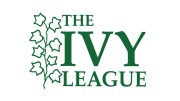On Thursday, the eight Ivy League presidents announced that no inter-conference athletic competition will take place this coming spring. This will be the fourth straight season of canceled competition, and the second spring season stifled by the ongoing coronavirus pandemic.
The presidents cited public health as the reason for the season’s cancellation, but added that certain training opportunities for enrolled student-athletes, including practices, may continue at each university’s discretion. “We know that this news will come as a disappointment to many in our community,” said their joint statement. “While we would like nothing better than to deliver a complete season of competition, these are necessary decisions for the Ivy League in the face of the health concerns posed by the ongoing and dangerous pandemic.”
The frustrating but unsurprising news arrives a week after the presidents had granted senior student-athletes an extra season of eligibility if they are enrolled as full-time graduate students in the 2021-2022 school year—a temporary reversal of long-time league policy that blocks graduate eligibility.
Despite the shutdown of Ivy competition, the statement mentioned the possibility of increasing athletic activity on campuses “if public-health conditions substantially improve.” This includes the possibility of local competition if a school enters “Phase IV” of athletic activities. Harvard currently remains in “Phase I,” which allows for socially distant, small-group conditioning; weight training; and sport-specific activity.
Even if Phase IV is reached, athletic director Erin McDermott said in an email to student-athletes that Harvard teams could compete only in a small number of sports, given limited roster numbers. Indoor sports like men’s volleyball and women’s water polo have no chance of spring competition regardless of conditions, nor do “high-risk” sports like women’s rugby.
Though plans for the fall have not been announced, Crimson student-athletes have been invited to a virtual Q&A session with President Lawrence S. Bacow next week regarding the spring decision and considerations for next semester. “We are all hopeful for better conditions and days ahead,” wrote McDermott. “For now, we will continue to train as able with those of you on campus, and allow time to tell whether any competition occurs.”









